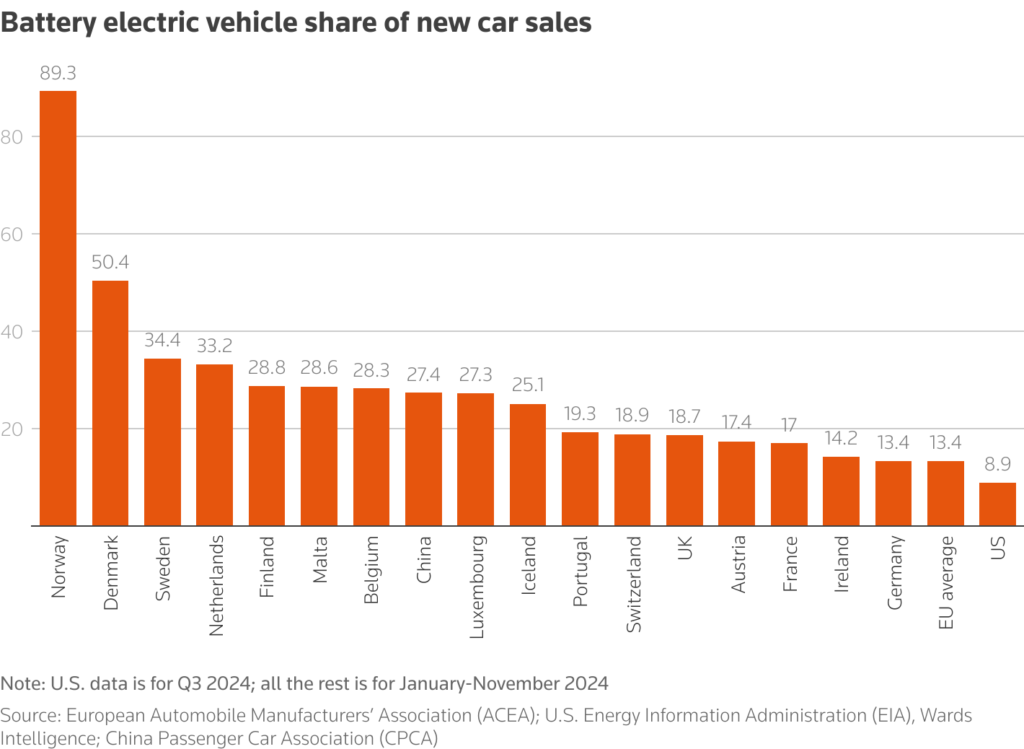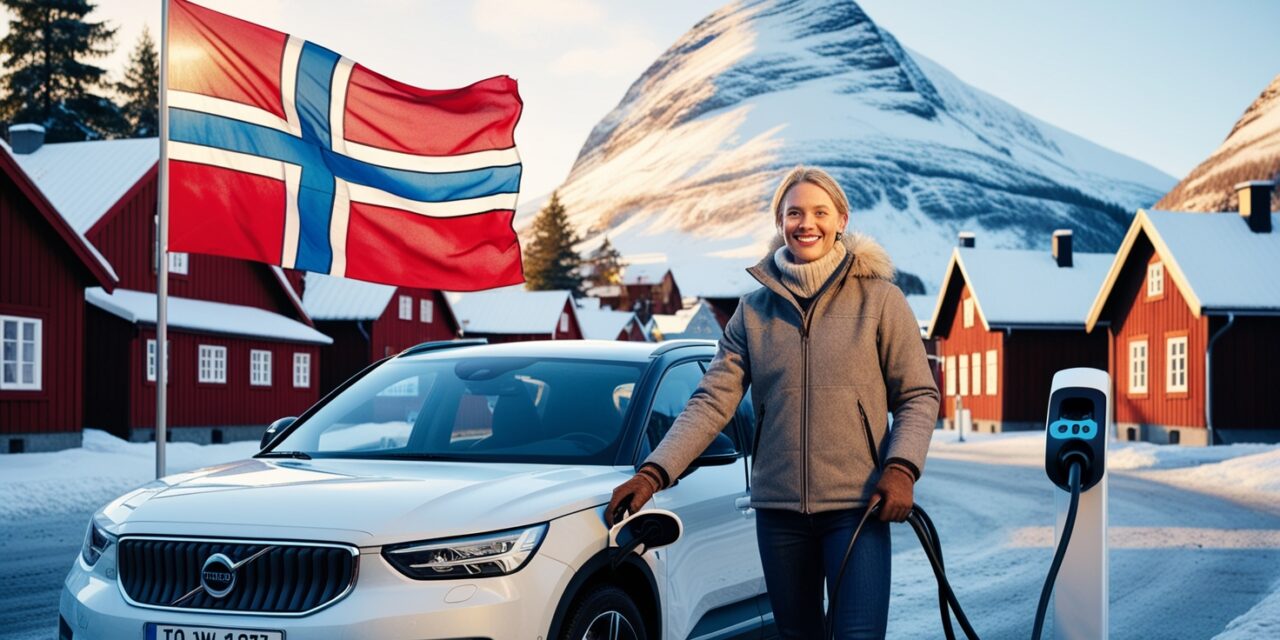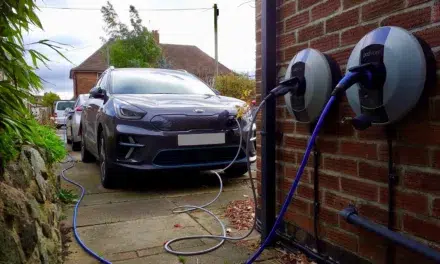Norway solidified its position as a global leader in electric vehicle (EV) adoption in 2024, with 88.9% of all new cars sold being fully electric. This marked a significant increase from 82.4% in 2023, putting the nation within striking distance of its ambitious goal to sell only zero-emission cars by 2025.
Tesla emerged as the dominant force in Norway’s EV market, with Volkswagen and Toyota closely following. Meanwhile, Chinese automakers such as MG, BYD, and XPeng made remarkable inroads, collectively capturing nearly 10% of the market. This growth underscores Norway’s openness to international manufacturers and highlights the growing appeal of Chinese EVs on the global stage.
Policies Driving Success
Norway’s success in EV adoption is underpinned by a consistent policy framework. The country imposes high taxes on petrol and diesel vehicles while offering significant incentives for EV buyers. Fully electric cars are exempt from import duties and value-added taxes, making them a financially attractive choice for consumers.
Although some EV-related tax benefits were partially rolled back in 2023, they remain highly effective in promoting the transition. Rather than implementing outright bans on petrol and diesel cars, Norway’s approach relies on economic incentives, which have proven to be more persuasive in driving consumer behaviour.
Infrastructure Growth and Challenges
The rapid rise in EV ownership has spurred significant investment in charging infrastructure, ensuring that drivers can charge their vehicles conveniently. However, challenges remain. Tourists renting EVs often find themselves unfamiliar with charging procedures, while drivers face longer charging times in winter due to reduced battery efficiency. Addressing these issues will be key as Norway continues its journey towards 100% EV adoption.

Global Implications
Norway’s progress serves as a blueprint for other nations looking to accelerate their own transitions to sustainable mobility. Its policy-driven success demonstrates that financial incentives, combined with infrastructure development, can achieve widespread EV adoption without resorting to restrictive mandates.
As the world watches Norway’s march toward its 2025 target, it’s clear that the Scandinavian nation is not just leading the charge—it’s redefining the future of transportation.













